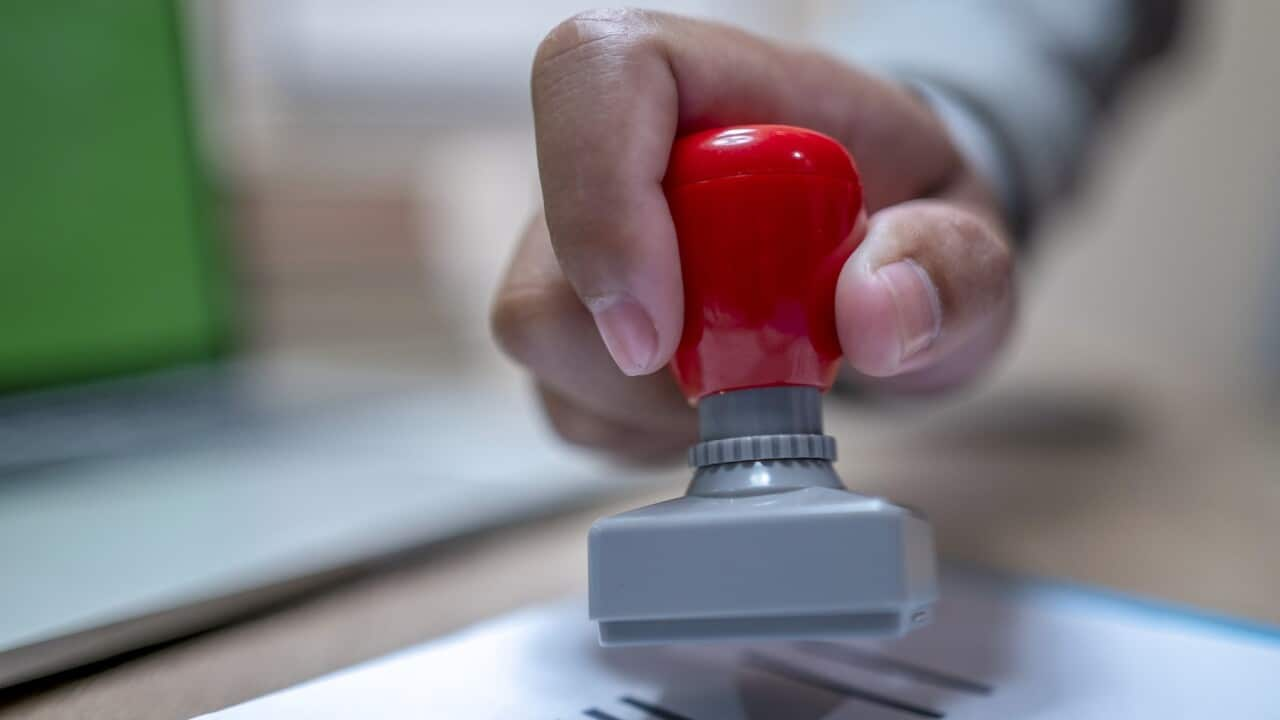Key Points
- For the credibility and validation of documents to be used in legal transactions in the Philippines, they need to be notarised.
- The person requiring notarisation must personally go to the Philippine Consulate Office or the Philippine Embassy and sign the documents.
- Documents created, signed, and issued in Australia must have an Apostille certificate from the Australian Passport Office Legalisation services before they can be used in the Philippines.
If you are in Australia and need to notarise documents for use in legal transactions in the Philippines, there are two ways to validate the credibility of these documents: consular notarisation and obtaining an Apostille Certificate.
LISTEN TO

Pa'no ba magpanotaryo ng dokumento sa Australia?
SBS Filipino
27/08/202407:49
Notarial Services at the Philippine Embassy/Consulate
According to Nova De Lara, Cultural Officer from the Philippine Consulate General office in Sydney, you can notarise documents such as affidavits, special powers of attorney (SPA), deeds, or sworn statements at the Philippine Embassy or Consulate. Here are the steps:
- Book an appointment through the Philippine Embassy or Consulate website.
- You must personally appear at the Embassy or Consulate office to sign the document.
- Bring the following:
- The original document to be notarized.
- A photocopy of the document.
- The original and a photocopy of a valid ID with a photo and signature, such as a passport or driver's license. The ID must match the name on the document.
- The fee is $45.00 per document, payable by cash or card (with a 1.5% surcharge), or postal money order made payable to "Philippine Embassy."
Processing takes three days. However, you can also get it done within one day for an additional fee of $18.00.
Apostille Certificate
If there are private documents that cannot be executed and signed in front of a consular official, they can be authenticated through an Apostille.
Documents created, signed, and issued in Australia, such as school records, marriage /birth/death certificates, require an Apostille certificate from DFAT or the Australian Passport Office Legalisation services in the state before they can be used in the Philippines.
Note that only documents certified by a Notary Public are accepted for Apostille; notarisations by a Justice of the Peace (JP) are not accepted.
You can find a list of notaries public in the records of the Supreme Court or Law Society for each state or territory.
Once the document has been "Apostillised" by DFAT, it can be sent directly to the Philippines. There is no need for the document to be authenticated at the Philippine Embassy or Consulate.
Related Content

Pa’no Ba?









